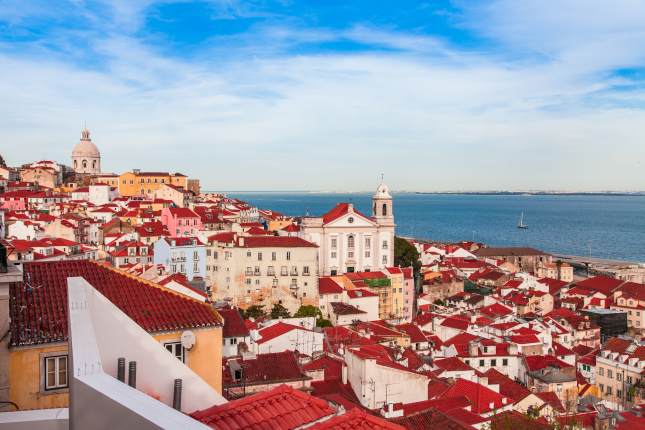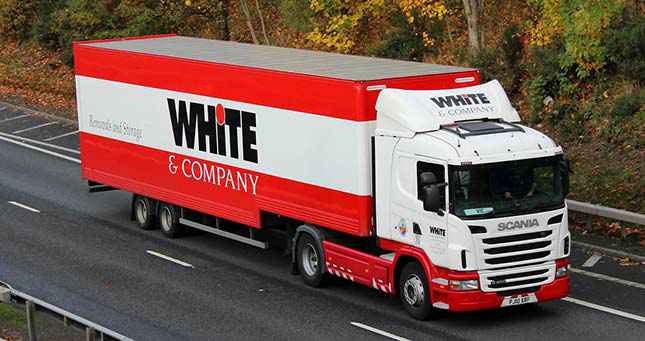Cost of Living in Portugal vs UK

Are you trying to establish the cost of living in Portugal vs UK?
This is the article for you!
Given the UK’s current financial crisis, which has pushed numerous individuals into a markedly unfavourable work-life balance, it comes as no surprise that many are exploring the possibility of relocating to an entirely different country in an effort to correct this balance to their advantage.
Perhaps Portugal appeals to you.
It has numerous advantages, not least that it is much closer than other countries that are popular with UK escapees, such as Australia and New Zealand.
You can be home in a relatively quick time, and it is easier and cheaper for family and friends to visit you more often.
If you are considering a move to Portugal, whether it is for work or as a retirement option, one of the most important aspects of a move abroad is going to be the potential financial impact.
You will doubtless have plenty of questions; Is the cost of living there within my means? Can I find a home at a reasonable price? What budget should I allocate for groceries? What earning potential can I anticipate?
These are just a handful of the common inquiries that emerge when embarking on a journey to an entirely different country whether it be near or far.
It is very hard to draw exact similarities between the UK and Portugal because in both countries’ your location, along with personal spending habits and lifestyle will play a part in affordability.
We can, however, give you an overview of the cost of living in Portugal vs UK and this is what we aim to do here.
By doing so we hope that you have a better understanding of what to expect, if and when you make your final decision to move to Portugal.
About Portugal

Life in Portugal is very different to the UK. Image credit: Unsplash
If the prospect of relocating from the UK to Portugal is on your horizon, get ready for an exciting adventure!
This remarkable country boasts some of the most breathtaking landscapes in all of Europe.
Embarking on a move from the UK to Portugal exposes you to a captivating history and a uniquely distinct culture unlike any other.
Of course, the weather is mild for most of the year, but it does get extremely hot in the summer months, June, July, and August.
Not only does more sunshine lift your mood, but those who suffer from certain health problems such as arthritis and some skin diseases will also benefit from Portugal’s milder climate
The work/life balance is excellent in Portugal and an outdoor lifestyle is a given.
The unique Portuguese cuisine is renowned for its use of fresh ingredients, rich flavours, and regional variations.
Dishes such as Arroz de Marisco: A flavourful seafood rice dish, Carne de Porco à Alentejana: A combination of pork and clams cooked with onions, garlic, and Pastéis de Nata: A beloved Portuguese custard tart are all on the menu.
With the overall cost of living being lower than the UK’s, you will have much to look forward to in Portugal.
Finding Work in Portugal
One of the major considerations even before you find work as a non-EU citizen, is to apply for the correct working visa.
To be eligible, a job offer from a Portuguese employer is essential. The job vacancy should have been advertised for a minimum of one month, allowing the authorities to confirm that the role cannot be filled by either a Portuguese or EU citizen.
Your employer assumes the responsibility of applying for a Work Permit on your behalf. They initiate the application process with the Portuguese Labour Authorities.
Another consideration is the language barrier. You stand a much better chance of gaining work if you have some command of Portuguese.
The Visaguide website has all the information and advice you need for obtaining your work permit.
There are several routes for hunting down a job in Portugal.
Networking with people in your industry, online websites such as LinkedIn or using the many Portuguese online employment agencies available.
Hooking up with ex-pats already in Portugal is another great way to get a foot in the door.
International companies are starting to establish themselves in the country making it much easier for expats to work there. Work with the IT, tech, marketing and other similar sectors are on the rise.
Tourism and real estate are also safe options for UK expats.
Sign up with some of the online employment agencies to see if your line of work has any vacancies:
To help you conduct your job search, use the “bePortugal” website.
It provides a very detailed and comprehensive guide on how you go about getting work in Portugal.
How do Salaries in Portugal Compare to the UK?

Wages in Portugal tend to be lower than the UK. Image credit: Unsplash
It is important to remember that the average wage in Portugal is much lower than in the UK with the average take-home pay (after tax) coming in at around €900 versus € 2,500 in the UK.
Here are some examples of common job titles for both countries and what your average annual salary could be when comparing the same skills/position.
- Software Engineer in Portugal €45,000+ (£38,000) – In the UK £50,000
- Admin Assistant in Portugal €21,600 (£18,700) – In the UK £23,000
- Welder in Portugal €13,800 (£11,907) – In the UK £25,300
- Electrician in Portugal – €23,000 (£19,844) – In the UK £36,000
- Teacher in Portugal – €24,000 (£20,700) – In the UK £38,000
Statistics supplied by Horizons.
Income Tax Comparisons
Similar to the majority of countries globally, both the UK and Portuguese residents are expected to pay their tax obligations.
A significant number of expats residing in Portugal are participants in the NHR (non-habitual residency) scheme. A decade-long tax initiative that bestows newcomers to Portugal with distinct tax rates for specific income types.
In essence, deciphering taxes in Portugal, especially for ex-pats whose income streams are often diverse, makes it rather tricky to understand.
While making direct comparisons between the two can be complex, it is still vital to acquaint yourself with the intricacies of the Portuguese taxation system.
Engaging the services of a good accountant familiar with the Portuguese system will make all the difference.
This proactive approach enables you to adequately prepare for your move and potentially minimize your tax responsibilities in both nations.
Just as with the UK, the taxation system in Portugal is incremental – the more you earn the more you pay.
At home, the system is a little less complicated and based on four tax bands:
- £0 and £12,570: 0%
- £12,571 and £50,270: 20%
- £50,271 and £150,000: 40%
- £150,000+ 45%
Whilst in Portugal there are additional bands:
Taxable income Income tax rate
- up to €7,112 14.5%
- €7,113–€10,732 23%
- €10,733–€20,322 28.5%
- €20,323–€25,075 35%
- €25,076–€39,967 37%
- €39,968–€80,882 45%
- €80,883+ 48%
For incomes above €80,000, an additional solidarity tax applies 2.5% on income between €80,000 and €250,000 and 5% on income above €500,000.
Because the systems are so different it is very hard to draw direct comparisons, but as your earnings are almost certainly going to be less, the tax you pay in most cases, is also going to be less.
As this is just a basic overview of the Portuguese taxation system, for further information click here.
Cost of Property Comparisons

Lisbon Houses. Image credit: Depositphotos
Property in Portugal is some of the best-priced in Europe.
If you are lucky enough to have a healthy budget, Portugal offers an array of luxurious multimillion-pound residences throughout the country.
However, the majority of homes are significantly cheaper, a major bonus in the relocation decision-making process.
Additionally, the country’s spacious homes are a stand-out feature when compared to the UK.
The vast majority are designed for outdoor living and boast spacious gardens with plenty of covered areas for shade in the hot months.
Owning a pool is often a pre-requisite in Portugal and many homes have this luxurious option. With a favourable climate as Portugal has, you can indulge in extended periods of outdoor enjoyment.
According to data from the UK Land Registry, the average home price in the UK is around £285,861.
In contrast, the average home cost in Portugal is approximately €496,200 (£428,022).
Whilst these direct averages initially indicate real estate is expensive in Portugal, it is not a true reflection of what you can get for your money in some regions.
For example, in Figueira de Castelo Rodrigo, in the district of Guarda, to the east of the country, it is possible to buy a large 5-bed home for as little as €270,000 (£233,000).
The popular areas of Tavira (close to Faro) and Ericeira (on the west coast) offer some beautiful abodes such as two-bedroom luxury apartments for between £210,000 – £250,000.
If you want to bag a bargain, you will have to conduct your search further inland.
Covilhã is located within the district of Beira Interior Norte in central Portugal, a pretty village with 3-bedroom villas for sale at a starting price of £170,500.
The location factor is crucial, as inland properties are more budget-friendly than their coastal counterparts.
Regardless of where you gather statistics, the consensus is clear: purchasing a home in Portugal is going to have lower costs when compared to the UK.
For a full explanation about buying a home in Portugal, download the Portuguese Property Gude here.
Cost of Renting Comparisons

Renting House Keys. Image credit: Pixabay
By far the best way forward for potential ex-pats is to begin your Portuguese journey by renting a home.
Before you make a huge commitment and purchase a home, you want to make sure you can make a go of it in Portugal long term.
Not only will renting a home allow you to familiarise yourself with the country, its customs, and its people, but it will also mean you can take time to find your perfect location.
Renting is as popular in Portugal as it is in the UK. There is a huge choice of homes available from one-bedroom apartments in the city, to huge expansive seaside residences.
Plus, rental homes in Portugal generally come fully furnished.
There are some great agents in Portugal who will help you with your rental search.
Remax, Century 21 and Keller Williams are all reputable agents with offices nationwide.
When it comes to monthly rental costs, Portugal beats the UK here.
Here we take the most expensive option of renting in the city centre.
A one-bedroom apartment in a city centre location in Portugal will cost you around £680pcm whilst in the UK a similar property is much more expensive at £920pcm. A saving of 35%.
For a family-sized 3 bedrooms rental in a city in Portugal, you can budget for £1330pcm, versus £1602pcm in the UK. A saving of £38%
With both countries, you are going to save yourself even more money by renting outside of the city area.
Monthly Utility Bill Charges
Getting your new home connected to gas, water and electricity will be one of the first things you need to organise in your new Portuguese home, be it owned or rented.
The procedure for setting up utilities in Portugal is quite easy and there are several companies and tariff options to choose from, just like home.
You will generally have options when it comes to the energy mix: electricity, gas, or a mixture of the two.
Interestingly, although Portugal has endless hours of annual sunshine, it’s actually wind and hydro that generate the most energy for the country. In fact, these two sources accounted for over 70% of all energy produced in Q1 of 2021.
When it boils down to how much you are going to pay for your monthly usage Portugal wins here again and by quite a big margin.
As an example:
Basic (Electricity, Heating, Cooling, Water, Garbage) for an 85m2 Apartment in Portugal comes in at around £94 per month whilst in the UK this rises by as much as 122% to £209 per month.
The good news is that your mobile phone and your internet charges are also cheaper in Portugal!
Childcare Cost Comparison

Child Care is far cheaper in Portugal. Image credit: Pexels
As salaries are lower in Portugal, you may find that if you have young children, you may need to supplement your income by incorporating two salaries instead of one.
The high cost of childcare in the UK is a contentious issue as parents here all agree that the monetary benefits the Government currently provides are just not enough to cover the cost, leaving many in a difficult financial dilemma.
You would need to budget £1088 per month in the UK vs £308 in Portugal.
Compared to our counterparts in Portugal, they pay a whopping 253% less for their preschool or kindergarten-aged children per month.
This is another area where you can potentially make huge savings.
Grocery Shopping Differences

Grocery shopping is likely to be cheaper when living in Portugal. Image credit: Pixabay
Having to shop for our food is a given, but what are you going to have to pay for your basic food items in Portugal?
Broadly stated, Portuguese supermarkets tend to offer reasonable prices.
Nevertheless, the expense of your shopping ventures hinges on your personal situation and the specific store you opt for.
Similar to their European counterparts, the Portuguese population tends to engage in more frequent shopping trips while purchasing fewer items per visit rather than one big weekly shop.
Portuguese people enjoy a number of staple ingredients in their everyday cuisine.
Popular items include tomatoes, corn, peppers, and chillies. Eggs are always on the menu and used in almost every course.
Pork is the preferred meat. The local animals graze on fallen acorns giving the meat a sweet succulent flavour.
Cured meat and smoked sausages are also popular along with a local delicacy “Morcela”, a taste and texture similar to black pudding.
Here are some grocery price comparisons:
- Dozen medium-sized eggs Portugal €2.39 (£2.06) – UK £2.50
- 1kg Tomatoes Portugal €1.87 (£1.60) – UK £2.12
- 1kg Potatoes Portugal €1.19 (£1.03) – UK £1.25
- 500g loaf of white bread Portugal €1.23 (£1.06) – UK £1.20
- 1 litre of milk Portugal €0.84 (73p) – UK £1.05
- Mid-range bottle of wine Portugal €4.00 (£3.40) – UK £8.00
- Cigarettes per pack of 20 €5.10 (£4.40) – UK £12.50
- Eating out in Portugal at an inexpensive restaurant €9.00 (£7.77) – UK £15.00
- Eating out in Portugal at a mid-range restaurant (three courses) €40.00 (£35.00) – UK £60.00
Yet again, you can see that when it comes to your daily shopping trips and when you treat yourselves to a night out, you are going to pay far less in Portugal.
The Outcome
Given the substantial variations in culture, way of life, and various other elements, our conclusions throughout all the sections in this article highlight that it is not always easy to make absolute direct comparisons.
These examples merely scratch the surface of cost-of-living disparities between Portugal and the UK.
Nonetheless, in a general context, the overall cost of living in Portugal tends to be more budget-friendly compared to the UK, particularly when considering key factors like housing, food, and recreational activities.
Many variables will play a role in determining how affordable life in Portugal will be for you and the impact on your life.
Factors such as your lifestyle aspirations, income, family situation, and the initial expenses for accommodation upon arrival will all vary significantly from person to person.
This is precisely why conducting thorough research well ahead of your move to Portugal is of paramount importance.
Those who have already made this life-changing move abroad find that Portugal offers a uniquely exceptional quality of life that most wouldn’t easily give up.
Getting your Personal Belongings to Portugal

White & Company Truck
Hopefully, you now know a bit more about the cost of living in Portugal vs UK!
After carefully considering the advantages and disadvantages of relocating to Portugal and when you’re prepared to join the ranks of nearly 50,000 fellow Brits who have already settled there, the next step involves ensuring the secure transport of your personal belongings.
When a task requires expert handling, it’s time to call in the professionals.
White & Company holds a strong reputation within the removal industry and is renowned for delivering a dependable, trustworthy, and reasonably priced service.
Moreover, as longstanding members of prestigious organisations like BAR, Omni, and FIDI, you can rest assured that our services are endorsed by the most influential bodies in the removal industry.
Feel free to call us today for a free, no-obligation home survey.
Alternatively, you can complete our online quick quote form or engage with our handy chatbot.
Regardless of the method you choose, we will respond promptly, aiming to assist you in realising your Portuguese emigration dream.

Max is a seasoned writer and blogger in the real estate and home moving sectors, as well as a knowledgeable source of information for expatriates living and working abroad. His detailed insights have helped thousands of people move and live abroad with greater simplicity and ease.
Posted in: News
Leave a Comment (0) ↓


